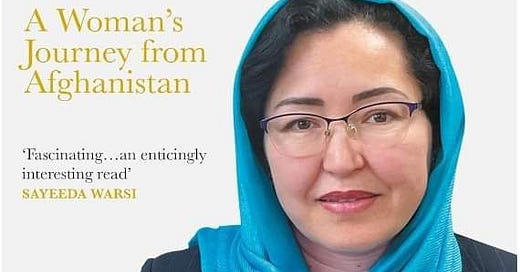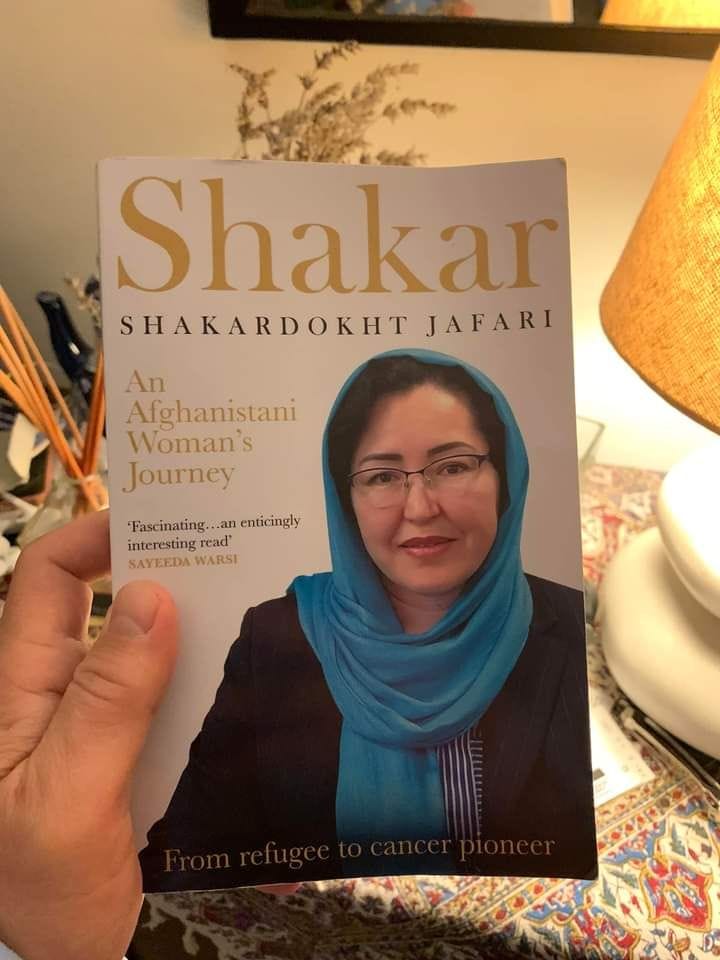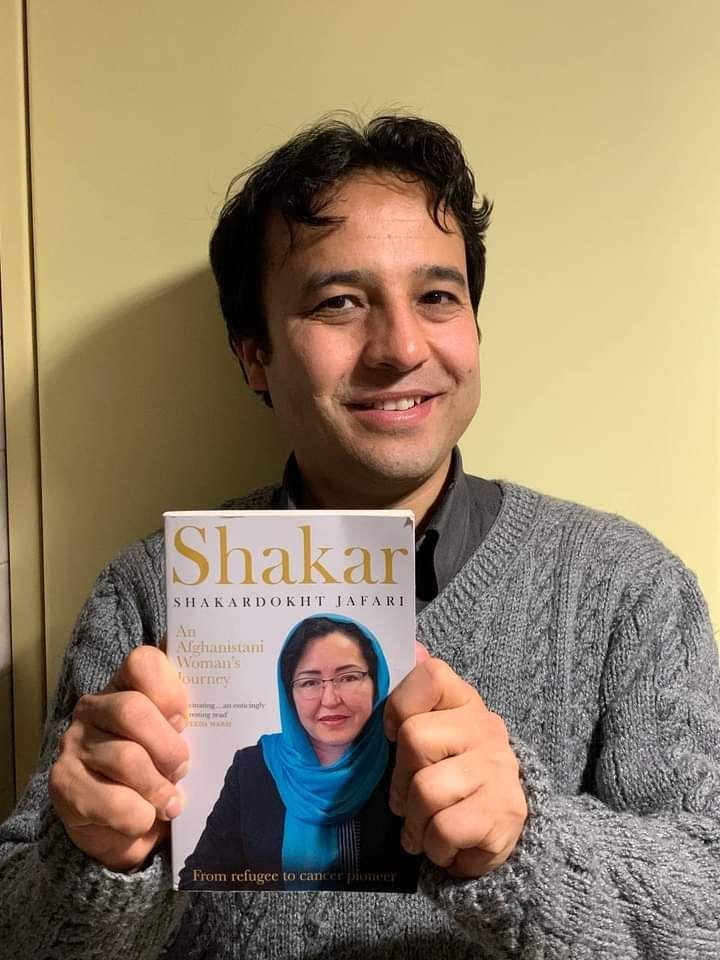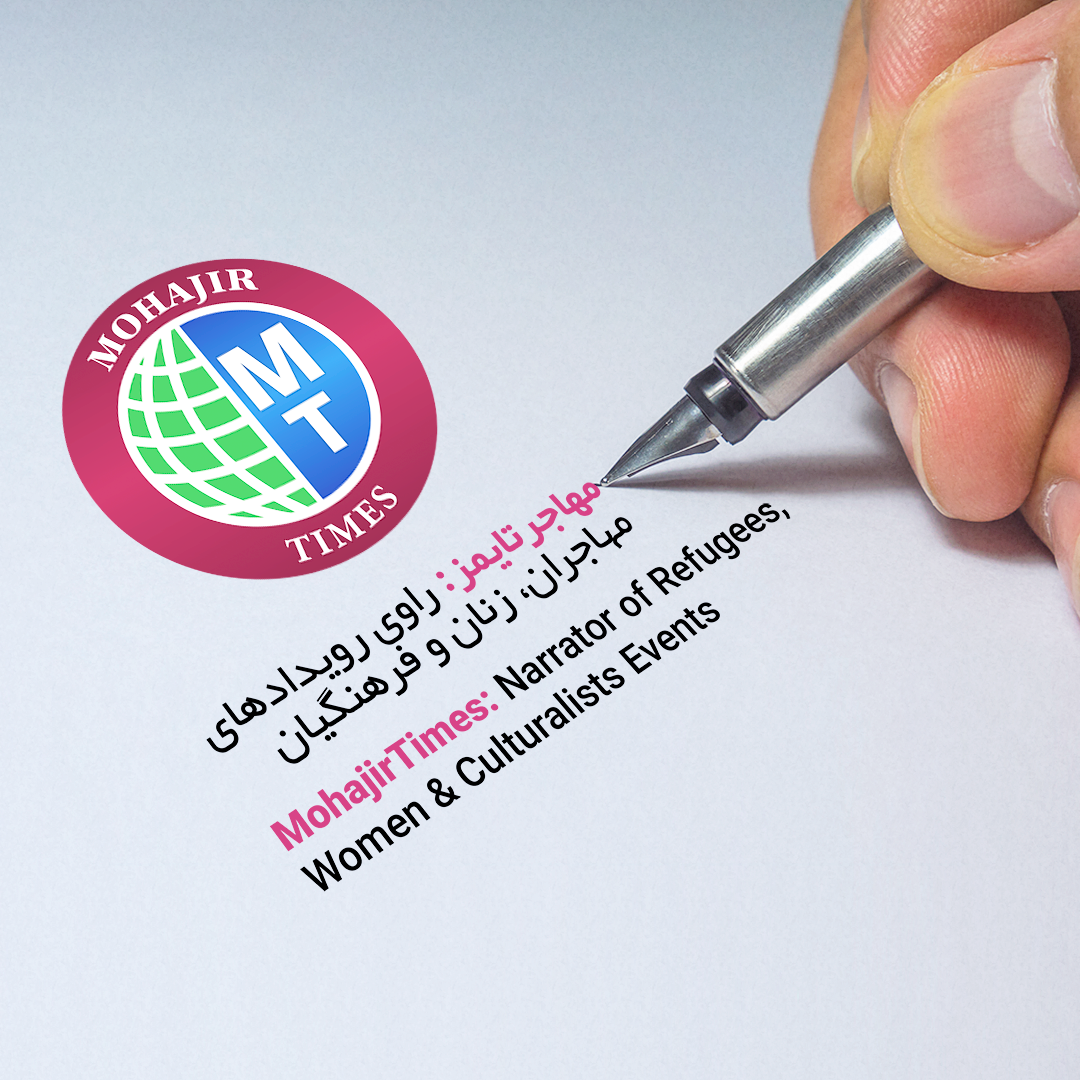The Hazara People Need Ambassadors Like Shakardokht to Represent Them in the World
Mohajir Times
Book Review: Shakar by Shakardokht Jafari
By Amin Wahidi
When I began reading this book, after the prologue the first pages seemed to me a hotchpotch as the blurry mixed childhood memories moved from one branch to the other like a bird as the narrator gives to the reader bits of family background and bits of socio-cultural information about her geographical area, which I thought might not worth reading but then after a couple of chapters, the reading turned stimulating and soothing, then it became a page turning that you can’t just put it down.
It is a unique story of one single person but at the same time, the story of thousands of Hazara refugees in diaspora who are born and raised out of their country and make the new land for them a place called homeland.
It’s a true story of a woman who believes to have been born in the wrong place and with wrong ethnicity when she faces numerous challenges throughout her study and career life but she still doesn’t quit fighting all those challenges to achieve what her real self wants.
Today a groundbreaking scientist and physician in the UK, winner of numerous awards, Shakardokht, (her name literally means “sweetie” or “sweet girl”) was born in a Hazara family in a remote village in Afghanistan that was part of Uruzgan province at that time (now it’s part of Daykundi) a couple of years before the Russian invasion of Afghanistan.
This extraordinary story of courage, struggle and self-determination and sacrifice of a woman, is an inspiring book not only for girls and women but also for men
At her very early age, Shakardokht’s family is forced to leave Afghanistan due to Russian war in national level and turbulences of civil war among the local fighting groups and fractions in their area so they immigrated to Iran in the search for a safe place to live; the country that seemed to have opened its doors to all Muslim neighbors following the Islamic revolution, but this journey itself is an odyssey for Shakardokht and her family.
The prologue is a scene of returning from a work trip, a recent success of hers in Europe and then with the first chapter we are taken to her childhood memories and family background and the next chapter about their immigration to Iran and so on, the story is narrated in a straightforward linear way.
The following chapters (there are 17 in total), each with a title recounts a fragment of her challenging life; their adventurous journey towards Iran, the loss of her baby sister during their long journey, their hard life as refugees in Iran, wrong family traditions that encourage arranged marriage between cousins, economical problems, pursuing of her dream of studying and the most difficult challenge her father’s discontent with the follow up of her higher education.
One of the most interesting parts is her father’s reaction to her disobedience regarding an arranged marriage. He announces the nullification of his fatherhood when she refuses to get married with her cousin twelve years older than her. Her father negates her as his daughter and doesn’t talk to her for quite a long time. Then at some point when she graduates from university and good words are spread about her among their relatives and acquaintances, he asks for pardon and conciliates with her.
The pace of the book is constant and as we go ahead from one third of the book on, the distance between reader-narrator almost vanishes and the reader is catapulted thoroughly within the happenings. In the last chapters towards the end of the book, you notice unknowingly an evolution in the narration pace and fluency along with the narrator’s own growth in age and education as if technically it has been written in real time according to happenings and passage of life. Then you come to think that the beginning of the book that represents her childhood period, maybe be intentionally written with such blurry depiction of the events as a child see things or think about them.
A big part of the book depicts the Afghanistani refugee life conditions in Iran through her own story; they are entitled to hard works for just little earnings they receive. The Afghanistani refugees in Iran are usually seen as hard laborers, farmers, janitors, bricklayers or at most as artisans and this is the image most of the Iranians have in mind about Afghanistani people; they praise these refugees for their hardworking, simplicity, honesty and contentment for little, therefore the angle of Iranians point of view has always been from up to down towards them. Thus if someone among these refugees have the dream of getting higher education, they surprise the Iranians. Shakardokht has been one of those who wanted to wreck this image, thus she had to confront with the hardships and cope with numerous difficulties; economic problems, lack of papers and many discouragements.
At the same time, the book doesn’t condemn all Iranians for racism, but gives a fair and realistic picture of the diversity and the grayscale of people as anywhere in the world that shows despite Iranian’s vast mistreatments with Afghanistani refugees, not all Iranians were the same, there were good people as well that helped her, encouraged her or became long lasting friends with her and her family.
When Shakar overcomes one part of the challenges, others appear on her path; after returning back to Afghanistan with big dreams, to begin a new chapter and contribute to the cures of her own compatriots by the education she has gained in Iran, she faces discrimination, personal jealousy, envy and worse than all corruption and nepotism that block her way, despite all negative events, she doesn’t change her mission to work for humanity, she stands firmly and keeps doing what she has to do. She is a mother of her children, but with her works and researches she things she can be the mother of many others who need her help.
A heart-breaking scene in the book is Shakar’s father’s quiet and gradual death from a Leukemia. This is also one of the turning-points in her professional life after which she decides to dedicate most of her time for the research in her field to help save as many lives as possible
The ethnic discrimination against Hazaras are tremendous at her return to Afghanistan and some old fashioned bureaucrats create more obstacles on her way in the academic and medical environment however her qualification and her unique ability eventually let her become a cadre at Kabul Medical University; she becomes the founder of a Cancer Hospital in Afghanistan, the first one of its types before moving to the UK to pursue her studies and researches for that same purpose.
Reading this story, you come to acknowledge and praise the struggles of the Hazara women who are condemned twice; once for being woman and once for being Hazara. They fight the challenges with patience, resilience and faith so to overcome them. The Hazara women contribute to the creation of a prosperous society by striving in education by which they raise outstanding children to offer to their society. Their never tiring efforts in the family life and their invaluable contribution to the society is one of the enrichments of the contemporary Hazara society.
The other good thing in the book is the honesty of the narrator, and her neutrality; despite all harshness she has confronted in her life, she doesn’t become a victim of vengeance to bias others in her narration. She doesn’t judge anyone. She just tells her story to testify the existing injustices in her country and beyond. Her gratitude to the people, friends, colleagues or whoever had helped her is mentioned in the book.
The second last chapter is about a shocking news she receives; a breast cancer and she goes under the examinations and treatments. The book finishes with the presentation of the narrator’s family members and their whereabouts after years and her projects of education in distance for the girls in Afghanistan.
The overall picture is of a capable woman with strong communication skills that help her create professional networks and stable friendships that gives hope to all women of Afghanistan.
The Hazara People Need Ambassadors Like Shakardokht to Represent Them in the World
Once a Hazara refugee poet wrote; “Hazaras are citizens of the world, their shoes their homeland.” Reading Shakardokht’s story this poetic comparison about the Hazaras could be understood better.
Whether you consider it a “memoir” or an “autobiography” it’s a page turning must read real-life story of a Hazara physician-scientist who crossed several obstacles and finally touched the acme of success. Her dream came true when she invented a detector machine for cancer related cures that could help save the lives of millions in the world. What greater thing in the world could exist than helping save humans’ lives?!
The amicable tone of the first person in this book is so good that you don’t think it’s been ghostwritten until you read it at the acknowledgment page. Ultimately, I would highly recommend reading of Shakar to all ages. #StopHazaraGenocide
Amin Wahidi is a Kabul born Afghan-Italian film director based in Milan. While in Afghanistan, Amin Wahidi worked for ATN (Ariana Television Network) producing three weekly television shows including one on cinema and another one on English language learning, presenting two of them. In 2007, after making a couple of short films, while working on his first feature film The Keys to Paradise about a suicide bomber in Afghanistan, he received death threats from fundamentalists and had to leave his country. He sought political asylum in Italy, which was granted, and he eventually became an Italian citizen in 2016. In Italy he has made short films including The Guest, winner of the Venice City Award in 2014, a feature fiction The Persian Dinner (2015) and a feature documentary Behind Venice Luxury which won another Venice City Award in 2017. He has studied cinematography in Luchino Visconti Film and Television School of Milan.








